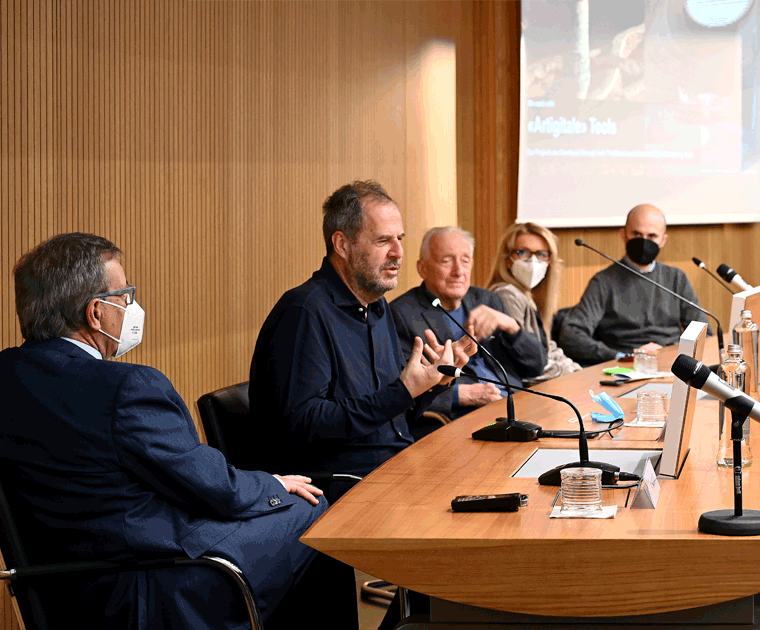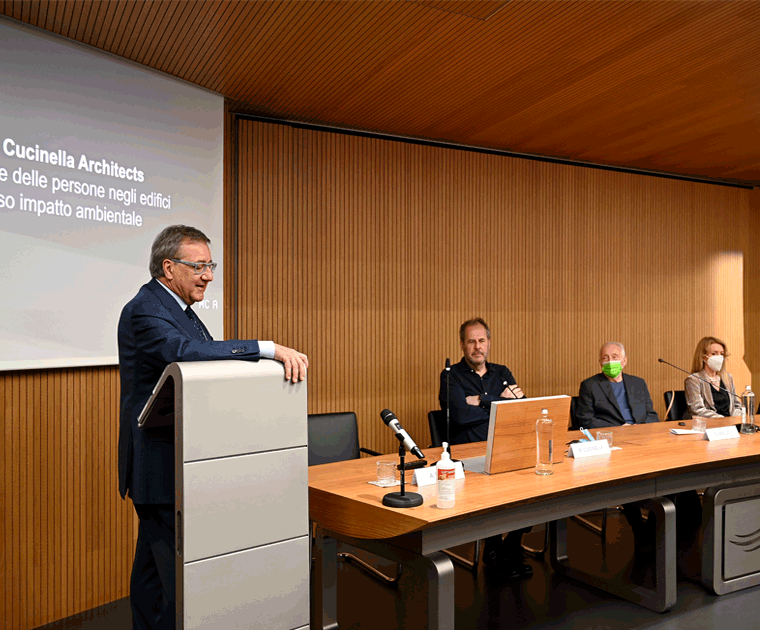MEETING WITH THE ARCHITECT MARIO CUCINELLA – 25 March 2022
On Friday 25 March, in the Raffaello Riello Research Centre at Aermec’s Bevilacqua site, a meeting took place with architects Mario Cucinella and Lorenzo Porcelli (the latter belonging to the MCA Research & Development Unit), entitled “People’s well-being in buildings with a low environmental impact”.
Mario Cucinella is a famous Italian architect, designer and scholar particularly well-known for his research into the environmental sustainability of buildings.
He founded his own studio, Mario Cucinella Architects (MCA), in Paris in 1992 and then in Bologna in 1999.
Today, MCA is a team of around 100 professionals with a variety of skills, from architecture to engineering and from urban and local planning to industrial design. Its mission is to create projects with a limited environmental impact as part of a constant challenge based on the more conscious use of energy.
In Milan in 2015, Cucinella founded SOS – School of Sustainability, a training opportunity for fresh graduates “that stands out for the primary attention to the use of sustainable architecture, from the urban scale to the product scale, from development to advanced communities”, bringing together education, research and practice factors in a multidisciplinary context.
The meeting was the brainchild of Aermec founder and current Group President Giordano Riello, as inspiration for ongoing research in the field of energy efficiency, the reduction of CO2 emissions and reduced electricity consumption.
The meeting opened with Aermec President Alessandro Riello highlighting the importance of integrated design – in other words close collaboration between the architect and the system designer right from the start of the project – and of the manufacturing industry’s awareness of the design process. Following this introduction, the event got into full swing.
The topics dealt with by Mario Cucinella and Lorenzo Porcelli were skilfully analysed, leaving much food for thought.
The design process of the future, where the building is defined as HYBRID, will need to be increasingly multi-faceted to include not only the architectural and plant engineering components but also paying special attention to the surroundings, climate, exposure and the building materials themselves.
The hybrid building will have to avoid waste, trying to combine the technologies with the local climate and continuously taking its inspiration from nature and the ability of plants to change and adapt to the environment they live in.
It will have to be designed as a common property, taking into consideration the potential effects (whether positive or negative) that it exerts on the life of all those who use it; the architect, in fulfilling his/her functions, therefore has a social responsibility towards the community.
“We have to design the future without forgetting the past” explained Mario Cucinella, “because a knowledge of the experiences, results, methods and technologies of the past must be seen as the key to improving our future.
The future has a clearly defined road map up until 2050, containing elements that can’t be ignored.”
The meeting with Cucinella ended with a speech by Aermec founder Giordano Riello, who stated: “If we win with ecology, it will be for the good of mankind.”


